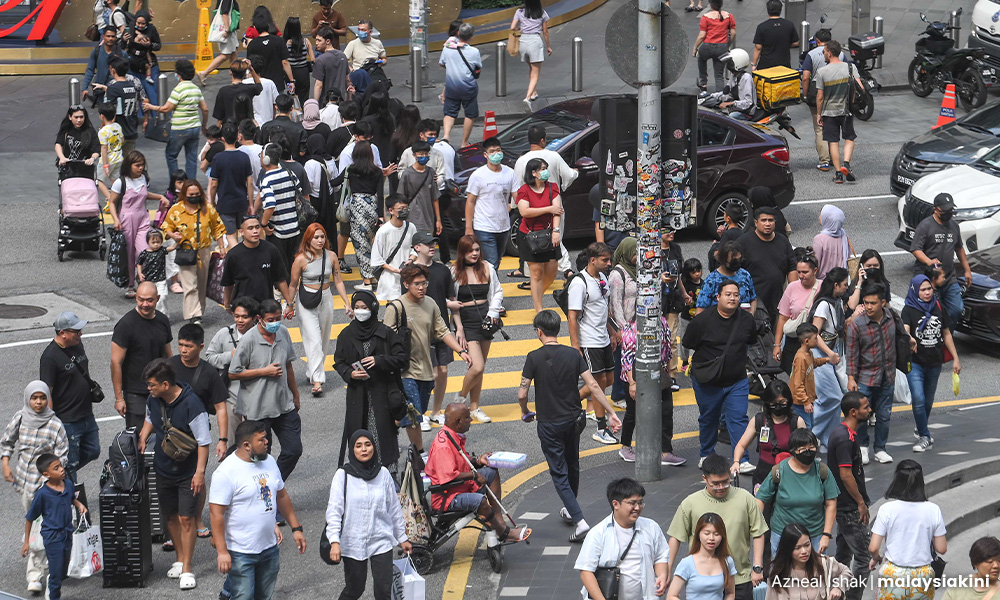In just a short span of slightly more than a hundred years, we have progressed from a simple letter taking weeks to travel between Kuantan and Kuala Lumpur, to instant reactions from people across the globe to photos on social media.
We cannot walk five steps without being bombarded by competing stimuli persuading us to consume, buy, follow, pre-save, etc for any number of reasons.
When we try to shut out the external world, we plug into ours to find comfort through content that is served to us like never-ending plates of food on a sushi belt.
Amplified by algorithms that detect and distribute the most engaging and enlightening items that fit the digital self that it has constructed based on your habits of use.
A dopamine hit must come in a few microseconds, it’s a swipe to the next one.
One way or another, we cannot allow ourselves to be bored.
Young and old are being trained to behave in this way today. With phones permanently glued to our hands, every glance must deliver. Immediate fulfilment, or at least close to it, and more concerningly, extreme convenience are two pillars of popular digital culture.

The drive to avoid any sort of inconvenience has generated billions of dollars of profits to multinational digital companies but with a huge cost to local enterprises and communities.
Yes, it has created jobs but it has also further reduced labour to a form of easily swappable commodity which is still at risk of being replaced by advanced automation.
Wide swathes of society are already affected by these shifts to culture, economy and employment even at this early stage of digitisation and automation.
A place for (just) us
Many concerns here are entrenched and addressing them would require more than direct government intervention.
In some aspects, many of the issues here are already constantly in a state of flux due to the incessant nudges around us.
These dings of notifications are overwhelmingly profit-motivated with commercial ends, but carry deep ramifications beyond keeping users stuck on a platform to buy and consume more.
Furthermore, the micro-bits of self-confirming bias that swell to become a consuming ideology is a direct impact of feeding micro-servings of concentrated pride, fear, anxiousness, and hope that add up to shape how users think and ultimately behave.
The retreating common shared spaces, be they physical, virtual, or cultural, means that this phenomenon will grow.
It is accelerated by the increasing tendency for communities to flock together to be among people who share the same cultural background and income class.
As diverse neighbourhoods thin out, and more people flock to ethnically-distinct areas, the wedge between communities is driven deeper. There will be less opportunity for interactions, and entrenched perceptions will be strengthened.
Small-L leadership
As we are starting to see, even small compromises will be viewed as capitulations, and dissent thought of as an act of aggression, as each digs in to protect their own turf.
In the same way that the government was not solely responsible for creating this situation, government action alone cannot be the solution.
Conversations cannot terminate with suggestions about what the government should do, especially when the discussion is at a neighbourhood coffee shop with not a nametag in sight.

We need a reformulation of the approach that we take to address our genuine grouses, which must be one that does not start and end with politicians.
Courageous and constructive leadership must emerge from different walks of life, and are able to help bridge suspicions and anxiety. It needs an audience of people who are willing and ready to come and sit down next to each other, for a start.
Maybe there is no need for a big agenda. Maybe all we need is to be able to be bored together, and the rest will come naturally. - Mkini
LUTFI HAKIM ARIFF is co-founder and podcaster at Waroeng Baru, a not-for-profit collective to promote democratic participation and resilience. He is also the co-author of the book ‘Parliament, Unexpected’ and an unrepentant believer in the power of local independent media. Lutfi tweets at @ltf_ha.
The views expressed here are those of the author/contributor and do not necessarily represent the views of MMKtT.



No comments:
Post a Comment
Note: Only a member of this blog may post a comment.